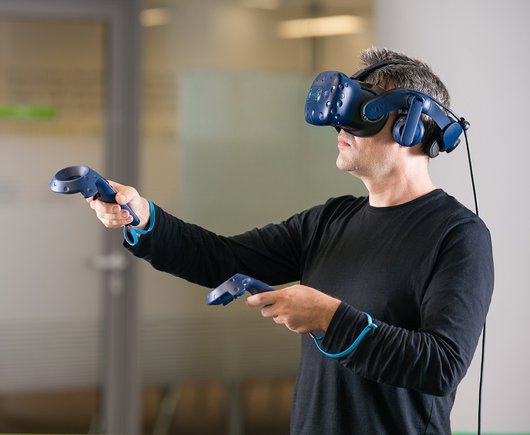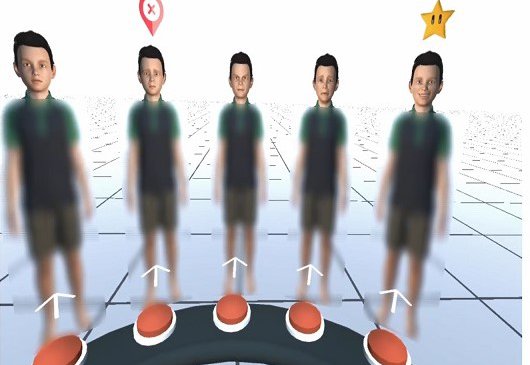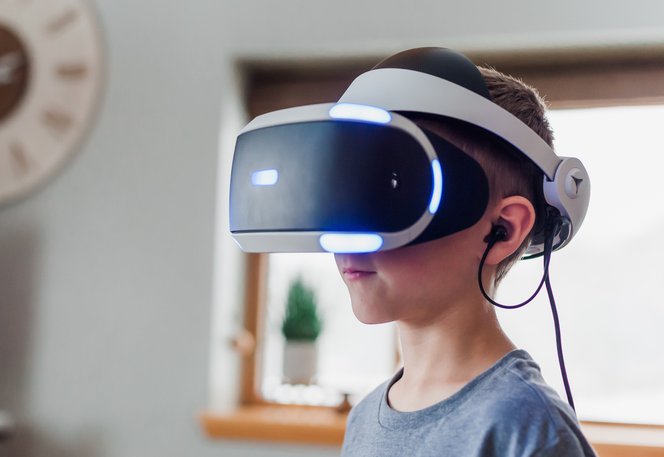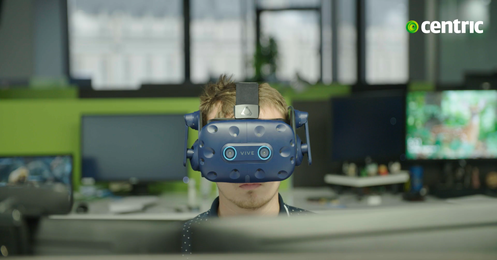We find ourselves at an incredible point in time when our choices and commitments will determine the course of upcoming generations. Human civilization has almost unlimited access to forthright knowledge that can lead to state-of-the-art technological innovations. One of these innovations that we can leverage to our advantage in today’s world of work is extended reality (XR).

Enabling children with ASD to cope with the world using VR
XR at a glance
XR is an umbrella concept usually used to describe immersive technologies such as augmented reality (AR), virtual reality (VR) and mixed reality (MR), all which help us bridge the digital and physical worlds.
Either by having virtual details overlaid on our real world or by fully immersing us in an interactive, simulated digital environment, these technologies have found their way into many industries, from gaming and movies to retail, education, and healthcare.
XR adoption in healthcare can help doctors, therapists, and any other health professionals better support the people they take care of. Virtual reality, especially, can improve wellbeing, help to visualize medical data more effectively and support therapeutic treatments and even surgeries.
VR therapy in autism
An interesting and highly rewarding use case of VR in the therapeutic area is applying this technology to help people, especially children, with autism to better communicate and connect with others and the world around them.
Autism spectrum disorder (ASD) is a developmental disorder that affects communication and behavior. Adults and children with ASD often experience challenges with social skills, verbal and non-verbal communication, as well as sensory and attention issues. However, even though there is a common set of characteristics, each individual also has their unique identities, whims, and preferences, as we all do.
VR technology can create safe, virtual environments that allow people with autism to prepare for encounters or situations that could be stressful. Dealing with their own or others’ emotions, crossing the street, going to the park or visiting a bookstore can all turn into challenging experiences for children with ASD, requiring a lot of concentration from their end. Therapists, counselors, teachers and parents alike are all struggling to find a way to safely expose children to these types of situations and help them learn how to deal with them.
Although modern medicine and therapeutic treatments are able to reduce ASD symptoms and allow children to experience the simple joys of life, dealing with autism can be extremely challenging for everyone involved, especially for parents and therapists. There is an immense amount of energy, resilience and empathy that goes into finding and applying the best way to manage symptoms and develop independence skills in children. Each small positive change in a child is a real victory and a stepping stone towards learning new behaviors.
Identifying the great potential of virtual reality in helping children with autism learn and cope with different situations, we have embarked on a journey to create the most adequate, personalized and absorbing virtual environments for them.

Dealing with emotions
Highly excited and determined, we started the adventure by creating an application that allows children with ASD to identify and understand emotions. With the help of a VR headset, they would see a character expressing one of the four primary emotions – happiness, sadness, fear, anger – and they could identify the right feeling based on several characteristic they have previously been taught. This first solution was designed together with and tested by Surâsul Albastru, an NGO from Iași which provides support to children with autism and their families.
Although the idea was well-received, we soon realized that children need much more in order to become really invested in learning and interacting using VR. There is no one-size-fits-all approach that works with all children, and most of the times, the best method is to try different perspectives, see what works, and what feedback we receive from the children themselves. Designing a safe VR environment which will appeal to the majority of children with ASD is not a one-time solution, but a continuous process of redefining learning during therapy sessions.
After further discussions between therapists, psychologists and the team developing the VR environment, we adjusted our approach and put both safety and fun at the forefront of our solution. Children, especially those with autism, learn best when they are engaged, when they feel safe, and, most importantly, when they have fun.

Crossing the street
Another key learning point from testing the 1.0 version is that such a VR solution must definitely address the socio-emotional abilities as well as sensorimotor and cognitive particularities of people with autism, which represent the four main pillars of child development.
The scenarios we aim to build to provide therapists with a better and easier solution for teaching children how to cross the street include a wide array of situations they could face – from a more static environment with less sensorial stimuli to an intense scene with lots of visual and auditory sensors. As mentioned, children with ASD do display several common behaviors, yet they also have their unique personality traits that makes them act and react to the outside world in a special way.
Depending on their age and level of comfort and acceptance of VR, the therapist has the possibility to customize the testing scenarios based on each child’s needs.
However, the learning experience is not complete without feedback. To be able to understand what the correct behavior is in a given context, children need to first be shown how to behave and then be given feedback on their actions. Therefore, the experience will include a tutorial on how to cross the street and rewards after each successfully completed scenario.
With the Virtual Therapist journey, children can gradually get accustomed to daily situations through a secure space, while benefiting from the VR embodied multisensory potential
Looking into the future
Using VR to design role-playing environments for practicing social situations has the potential to be the best learning tool for children with autism. VR allows children to not only experience the situations and emotions that come with them, but also have their sensory system engaged by dealing with different stimuli such as visual, auditory and tactile.
We are enthusiastically working on constantly improving the solution and offer therapists and parents the chance to maximize the children’s ability to function by supporting their learning process.

Contact Us!
Andrei Dobjenschi, Software Development Manager
If you wish to know more about this adventure, contact Andrei by email at andrei.dobjenschi@centric.eu or by phone at +40720012220.
XR @ Centric

XR Development